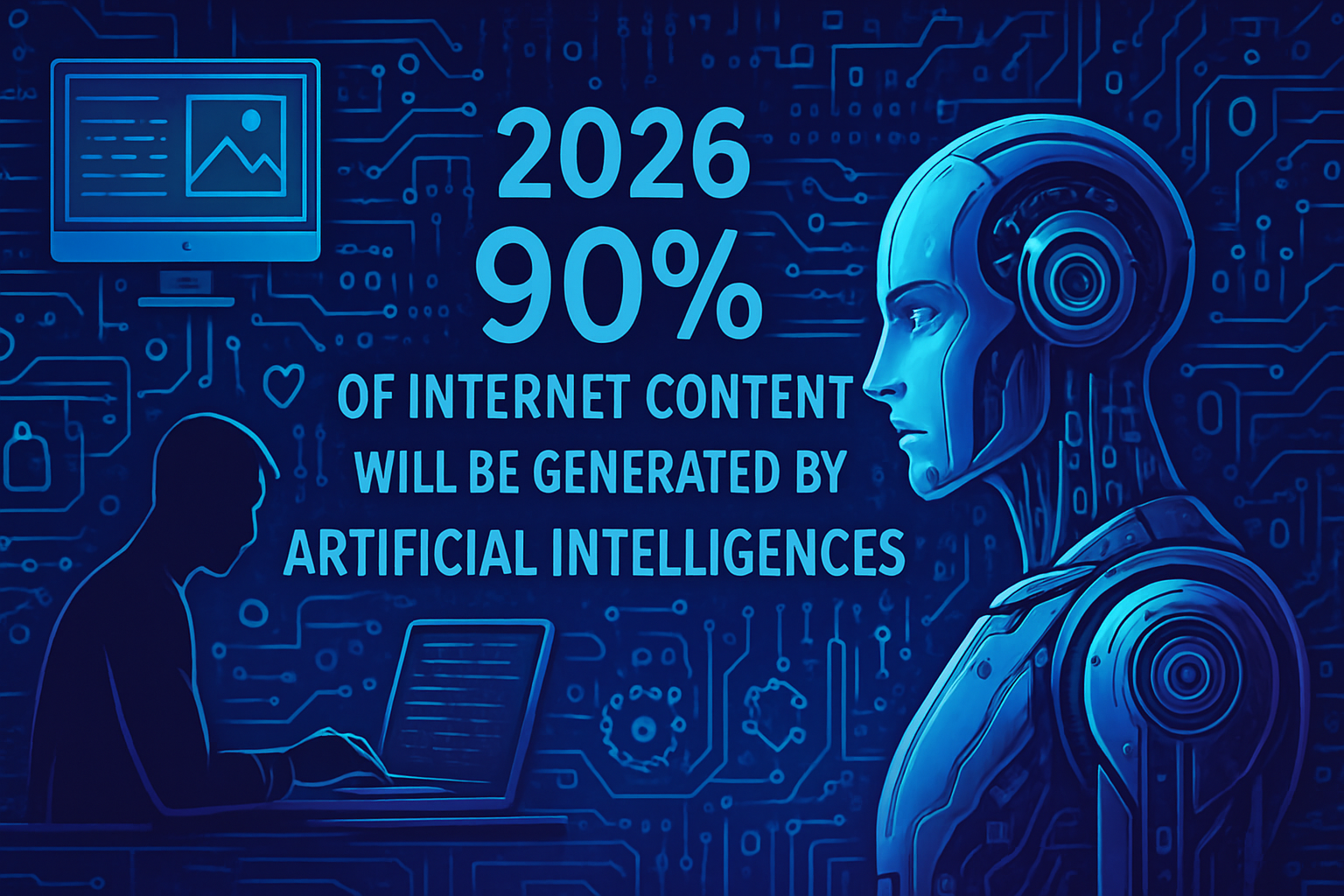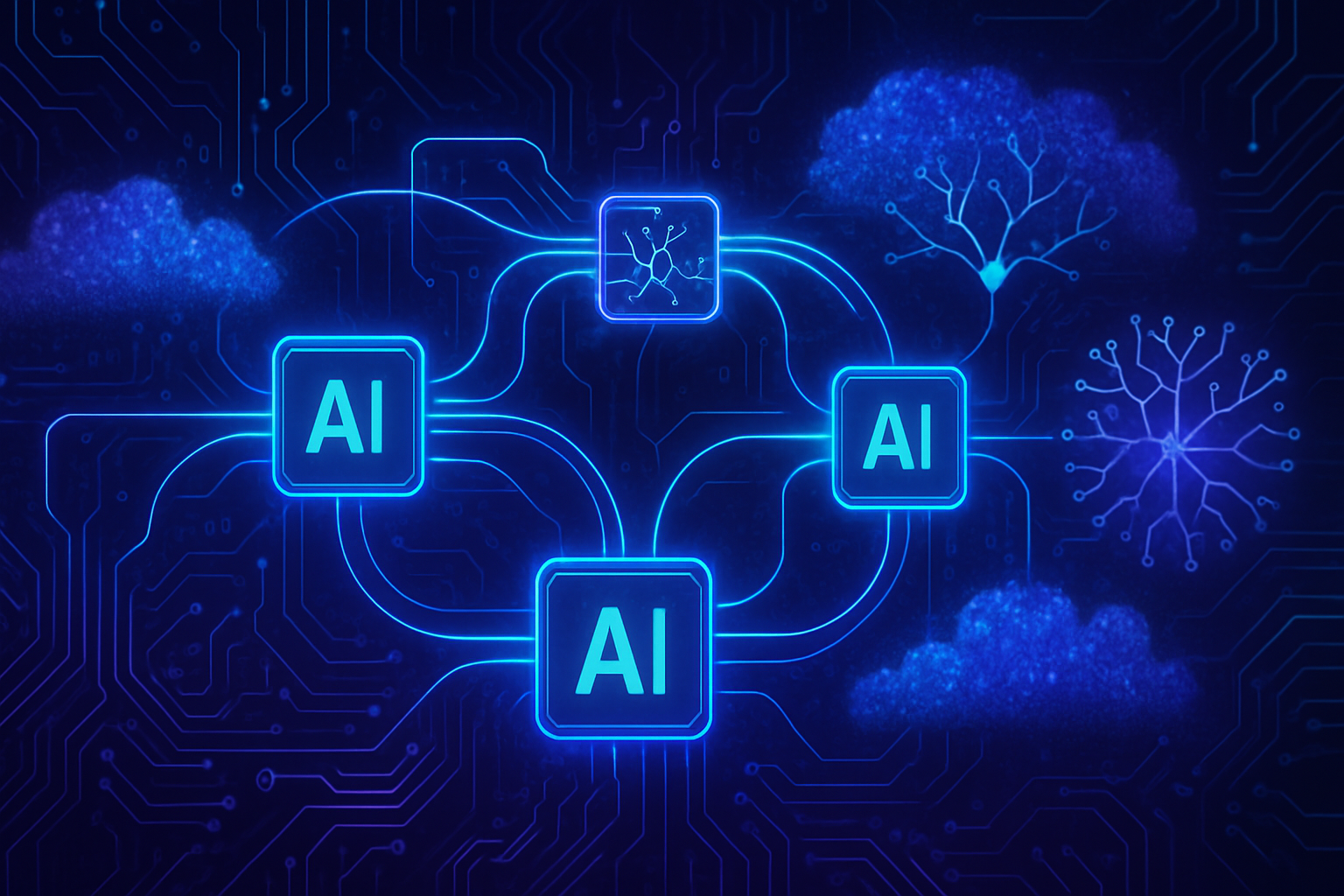The dominance of artificial intelligences is transforming our digital landscape. A dark star looms on the horizon, heralding a radical shift in online interactions. This metamorphosis threatens to eradicate content diversity, as *90% of productions could become the result of algorithms by 2026*. The phenomenon emerges as a *disturbing reflection on human authenticity and creativity*. The implications of such an evolution go beyond simple information saturation, deeply affecting our relationship with knowledge and online experience.
The Rise of AI-Generated Content
A recent report highlights an alarming forecast: by 2026, 90% of content on the Internet will be created by artificial intelligences. This trend denotes a profound transformation of our digital ecosystem, marked by an unprecedented erosion of the human provenance of information available online.
The Dead Internet Theory
The theory of the dead Internet, or Dead Internet Theory, suggests that the Internet as many have known and enjoyed for decades is about to disappear. Governments, according to some claims, would manipulate the population using artificial intelligences. This hypothesis, albeit alarming, could reflect a reality more dominated by bots and artificially generated content.
Impact of Artificial Intelligences
Generative artificial intelligences, such as ChatGPT, emerged at the end of 2022. Their accessibility to the general public has facilitated the creation of increasingly sophisticated content, making the detection of bots more complex. The increased sophistication of automated messages responds to an aggressive propaganda logic, allowing malicious actors to saturate digital platforms.
Automation and Disinformation Strategies
The creation of fake accounts and recurring content is becoming alarming. A malicious user could generate thousands of unique messages promoting the same agenda. AIs change the game by making this automation more efficient, thus providing the possibility to manipulate public opinion in ways previously unimaginable.
The Role of Governments and Companies
Governments and companies, driven by a desire for profit, have contributed to the degradation of the digital space. Platforms aim to maximize the number of clicks and interactions, often at the expense of content quality. This promotes the emergence of propaganda techniques, which do not hesitate to use compelling narratives to sow discord among users.
Consequences for the User
Faced with this troubling transition, the Internet user becomes a “second-class citizen” on their own network. Authentic human interactions are becoming rarer, replaced by simulations generated by algorithms. It is essential to question the validity of what is seen online, being wary of content that provokes a strong emotional reaction.
Toward More Private Digital Spaces
Experts suggest that the future may see a shift toward more private social networks, such as Discord. These environments could foster the creation of communities closed to bots and automated content, offering users a more authentic and less polluted space for interaction.
Preparing for the Digital Future
To navigate this changing ecosystem, it is imperative to develop critical skills. Rigorous evaluation of information becomes crucial, as does the ability to discern the true intentions behind messages disseminated online. Vigilance and systematic questioning of content are essential to counter this tide of misinformation generated by artificial intelligences.
Redefine the concept of collaboration in the age of AIs.
Explore the latest language models in artificial intelligence.
A future of artificial intelligence that respects dignity.
A call to celebrate imperfection.
An initiative by Elon Musk for smarter solutions.
Frequently Asked Questions About the Erosion of the Digital Ecosystem by Artificial Intelligences
What does it mean that 90% of the content on the Internet will be generated by artificial intelligences by 2026?
This means that the majority of the content we consume online will be created by automatic systems rather than humans, which could diminish the diversity and authenticity of information.
What are the potential impacts of this trend on the quality of online content?
The quality of content could be negatively impacted, as artificial intelligences may produce superficial or incorrect information, unable to grasp human nuances and contexts.
How can users verify the authenticity of the content they encounter online?
Users need to develop critical thinking, check information sources, and be wary of content that seems too homogeneous or lacks credibility.
Why are artificial intelligences increasingly used to generate content on the Internet?
AIs allow for large-scale and rapid production, responding to the constant content needs of platforms, often for monetization and user engagement purposes.
What measures should platforms take in response to this evolution?
Platforms must strengthen content verification mechanisms, promote human contributions, and encourage transparency regarding the origin of content.
Can AIs understand and convey emotional messages like a human does?
While they can simulate emotions through data, AIs cannot truly feel or experience human emotions, which limits their ability to create authentic content.
What are the risks of an excessive dominance of AI in content production?
A major risk is the proliferation of misinformation and bias, as well as a potential homogenization of thought, where unique voices and diverse perspectives could be stifled.
How will this affect human content creators?
Human content creators could face increased competition, which could harm their visibility and ability to monetize their work, questioning the viability of certain creative professions.
Is the trend towards AI-generated content reversible?
It is difficult to say if it is reversible, but increased awareness and a commitment to ethical practices could encourage a return to more authentic and human content.






